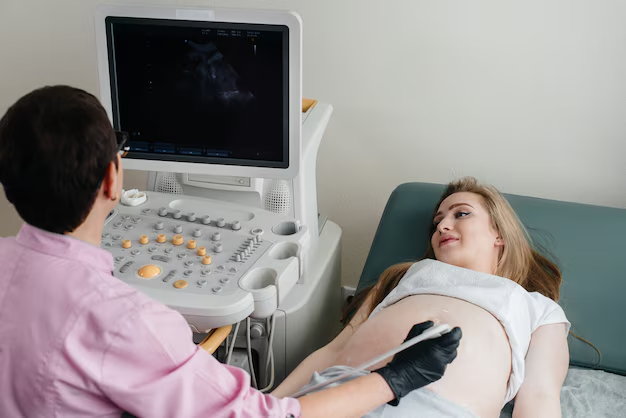Detecting Ovarian Cancer: What You Need to Know to Stay Informed
Ovarian cancer is often referred to as a "silent killer" because its early stages typically present few, if any, symptoms. This makes awareness and proactive monitoring crucial. Women who are informed can better navigate the complex landscape of detection. If you're wondering how to check for ovarian cancer, this guide sheds light on all the practical steps you can take to stay vigilant.
Understanding Ovarian Cancer
What Is Ovarian Cancer?
Ovarian cancer occurs when abnormal cells grow uncontrollably in the ovaries, which are reproductive glands responsible for producing eggs and hormones like estrogen and progesterone. While it's the 11th most common cancer among women, its subtle onset often leads to late detection, especially since early symptoms are easily mistaken for less severe health issues.
Why Early Detection Matters
Early detection can significantly improve treatment outcomes. When ovarian cancer is identified in its initial stages, the survival rates are much higher than if diagnosed at a later stage. Empowering yourself with knowledge and staying proactive can be life-saving.
Recognizing Symptoms
Common Early Warning Signs
Despite its reputation as a silent disease, there are symptoms you should be mindful of:
- Persistent bloating
- Pelvic or abdominal pain
- Quickly feeling full when eating
- Frequent urination
- Changes in bowel habits, like constipation
If these symptoms persist for more than two weeks, it’s crucial to see a healthcare professional.
Connecting the Dots: Risk Factors
Understanding your risk factors can help determine how vigilant you need to be. Key factors include:
- Age: Risk increases with age, particularly after menopause.
- Family History: A family history of ovarian cancer or related cancers can heighten your risk.
- Genetics: BRCA1 and BRCA2 gene mutations are linked to higher chances of developing ovarian cancer.
- Certain Fertility Treatments: Some fertility drugs have been linked to an increased risk.
Methods of Detection
Regular Medical Check-ups
Routine check-ups serve as a primary line of defense. While there's no standard screening test for ovarian cancer, your physician can monitor symptoms and conduct pelvic exams to detect any abnormalities.
Diagnostic Tools and Tests
If a doctor suspects ovarian cancer, several diagnostic tools may be employed:
- Transvaginal Ultrasound (TVUS): This test uses sound waves to create images of the ovaries and can identify masses, although it can't confirm cancer.
- CA-125 Blood Test: This test measures the level of CA-125, a protein that tends to be elevated in women with ovarian cancer. While not conclusive, it's a piece of the puzzle.
- CT Scans and MRIs: Imaging tests provide detailed pictures of the ovaries and surrounding areas, which can help in identifying abnormalities.
Genetic Testing
If there's a significant family history of ovarian or breast cancer, genetic testing for BRCA mutations might be a recommended route. Identifying these mutations can open doors to preventive measures and targeted monitoring.
Navigating Next Steps
Consulting a Specialist
If tests suggest abnormalities, consulting a gynecologic oncologist is crucial. These specialists have the expertise in handling cases specific to ovarian and cervical cancers, offering a more nuanced approach to treatment and diagnosis.
Undergoing Further Testing
In some cases, a biopsy might be necessary to confirm cancer. This involves removing a small tissue sample from the ovary for closer examination under a microscope.
Prevention and Self-Care Tips
Lifestyle Modifications
Though no certain way can prevent ovarian cancer, certain lifestyle choices may help reduce your risk:
- Diet and Exercise: Maintaining a healthy weight through a balanced diet and regular physical activity can reduce the likelihood of many cancers.
- Contraceptives: Studies have suggested that long-term use of oral contraceptives may lower the risk of ovarian cancer.
- Regular Monitoring: Women with a family history of cancer should engage in routine check-ups and discussions with healthcare providers about their risks.
Building a Support Network
Emotional and Practical Support
Facing potential cancer-related health challenges can be emotionally taxing. Building a support network involving family, friends, or support groups can provide valuable emotional and practical support.
Staying Informed
Keeping abreast of the latest research and recommendations about ovarian cancer is empowering. Organizations dedicated to women's health often provide valuable resources and support networks, both online and offline.
Moving Forward with Confidence
Taking charge of your health involves a balance of staying informed, monitoring symptoms, and engaging in regular dialogue with healthcare professionals. By understanding the risk factors, symptoms, and diagnostic tests related to ovarian cancer, you can take proactive steps to protect your health.
Summarizing Key Takeaways
Here’s a concise list to help you remember the essential aspects of monitoring for ovarian cancer:
- Stay Aware: 🚨 Watch for persistent symptoms like bloating or abdominal pain.
- Routine Check-Ups: 🩺 Engage in regular health screenings and discuss your family history with your doctor.
- Know Your Risk: 📈 Understand personal risk factors like age and genetics.
- Diagnostic Tools: 🔬 Be open to undergoing tests such as ultrasounds or CA-125 assays if recommended.
- Lifestyle Choices: 🍎 Embrace healthy habits to potentially lower risk.
- Seek Support: 🤝 Build a network that provides emotional and practical help.
Remember, this information serves to guide and inform you, but consulting with healthcare professionals is always the cornerstone of managing your health effectively.

Related Articles
- Are Breast Cancer Lumps Painful
- Are Chills a Sign Of Cancer
- Are Colon Spasms a Sign Of Cancer
- Are Lytic Lesions Always Cancer
- Are Polyps Cancer
- Can a Blood Test Detect Cancer
- Can a Ct Scan Detect Cancer
- Can a Dexa Scan Show Cancer
- Can a Gastric Emptying Scan Show Cancer
- Can a Lung Biopsy Cause Cancer To Spread
